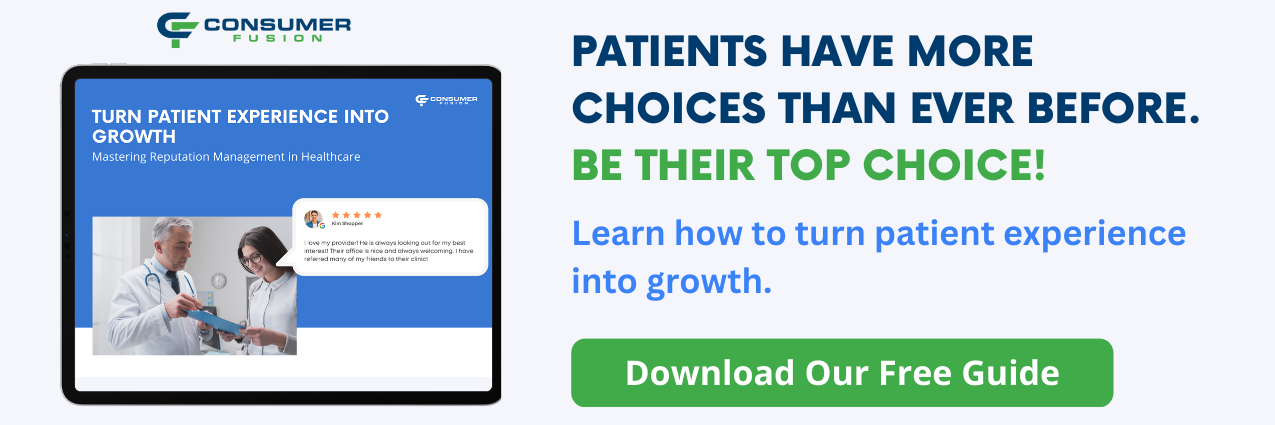In today’s digital world, reputation management has become a crucial aspect for success in the healthcare industry. Maintaining a positive reputation is essential, as it directly influences patient trust, brand perception, and, ultimately, the success of healthcare organizations. In this blog post, we will delve into the significance of reputation management in healthcare, defining its importance and exploring how healthcare providers can leverage it to rank high in reputation management searches within the healthcare industry.
What is Reputation Management in Healthcare?
Reputation management refers to the proactive strategies and actions taken by healthcare organizations to shape, monitor, and maintain a positive public perception. It involves actively managing online reviews, feedback, and public sentiment to cultivate a trustworthy and reputable image.
The Importance of Reputation Management in the Healthcare Industry:
Patient Trust and Confidence
A positive reputation is essential for building patient trust and confidence. In healthcare, patients place their well-being and lives in the hands of providers, making trust a fundamental aspect. A strong reputation enhances patient confidence in the quality of care, expertise of healthcare professionals, and overall patient experience.
Patient Acquisition and Retention
Reputation directly influences patient acquisition and retention. Potential patients actively seek information online, read reviews, and consider the experiences of others before making healthcare decisions. Positive online reviews and a strong reputation can attract new patients, while negative reviews or a poor reputation can deter them. Reputation management allows healthcare organizations to actively shape their image, attract new patients, and retain existing ones.
Positive Word-of-Mouth Referrals
Positive patient experiences and a well-managed reputation often lead to positive word-of-mouth referrals. Satisfied patients are more likely to recommend healthcare providers to their friends, family, and online communities. This organic form of referral can significantly impact the growth and success of healthcare organizations, as it comes from trusted sources.
Competitive Advantage
In a highly competitive healthcare industry, a strong reputation serves as a competitive advantage. When potential patients are faced with numerous healthcare options, a positive reputation sets organizations apart from their competitors. A well-managed reputation conveys credibility, reliability, and quality of care, making healthcare providers the preferred choice among patients.
Strategies for Managing Online Reputation
Now that we know how to create a great patient experience and reviews are coming into your system, it is important to understand how to manage your online reputation. Managing your online reputation is crucial for healthcare providers to maintain a positive image and attract patients. In this section, we will explore effective strategies that providers can implement to manage their online reputation successfully.
1. Proactive Online Review Management
Monitor and manage online reviews across various platforms regularly. Encourage satisfied patients to leave positive reviews and promptly respond to negative reviews with empathy and a genuine desire to resolve concerns. By actively engaging with reviews, healthcare organizations demonstrate their commitment to patient satisfaction and address any potential issues promptly.
2. Implement a Robust Patient Feedback System:
Develop a comprehensive patient feedback system to collect insights and identify areas for improvement. This can include patient surveys, post-visit questionnaires, and feedback forms on your website. Actively analyze the feedback received, identify recurring themes, and implement changes based on patient suggestions and concerns. Communicate to patients that their feedback is valued and utilized to enhance the quality of care.
3. Focus on Patient-Centered Care:
Place patients at the center of your healthcare services by prioritizing their needs, preferences, and comfort. Foster a culture of empathy, respect, and open communication among healthcare professionals. Encourage active listening, patient education, and involvement in decision-making processes. Providing personalized, patient-centered care improves patient satisfaction and contributes to a positive reputation.
4. Enhance Communication Channels:
Implement clear and effective communication channels to ensure that patients are well-informed and have easy access to healthcare professionals. Develop user-friendly patient portals or mobile applications where patients can securely access medical records, schedule appointments, and communicate with their care team. Proactive and transparent communication helps build trust, reduces misunderstandings, and enhances the patient experience.
6. Invest in Staff Training and Development:
Provide ongoing training and development opportunities to healthcare staff, emphasizing the importance of patient experience and reputation management. Train staff members on effective communication skills, empathy, conflict resolution, and best practices for handling patient feedback. Empower your employees to deliver exceptional patient experiences and become ambassadors for your organization’s reputation.
7. Foster a Culture of Continuous Improvement:
Cultivate a culture of continuous improvement, where all team members are encouraged to contribute ideas and actively participate in enhancing patient experiences. Regularly evaluate and adjust processes based on patient feedback and changing needs. Embrace a mindset of always striving for excellence and proactively addressing areas that need improvement.
Reputation management plays a pivotal role in the healthcare industry, directly influencing patient trust, acquisition, and retention. Healthcare organizations must actively manage their reputation to build trust, foster patient loyalty, and remain competitive. By utilizing effective SEO strategies such as keyword optimization, valuable content creation, link building, and social media engagement, healthcare providers can achieve high rankings in reputation management searches within the healthcare industry. Embrace the power of reputation management to cultivate a positive


















